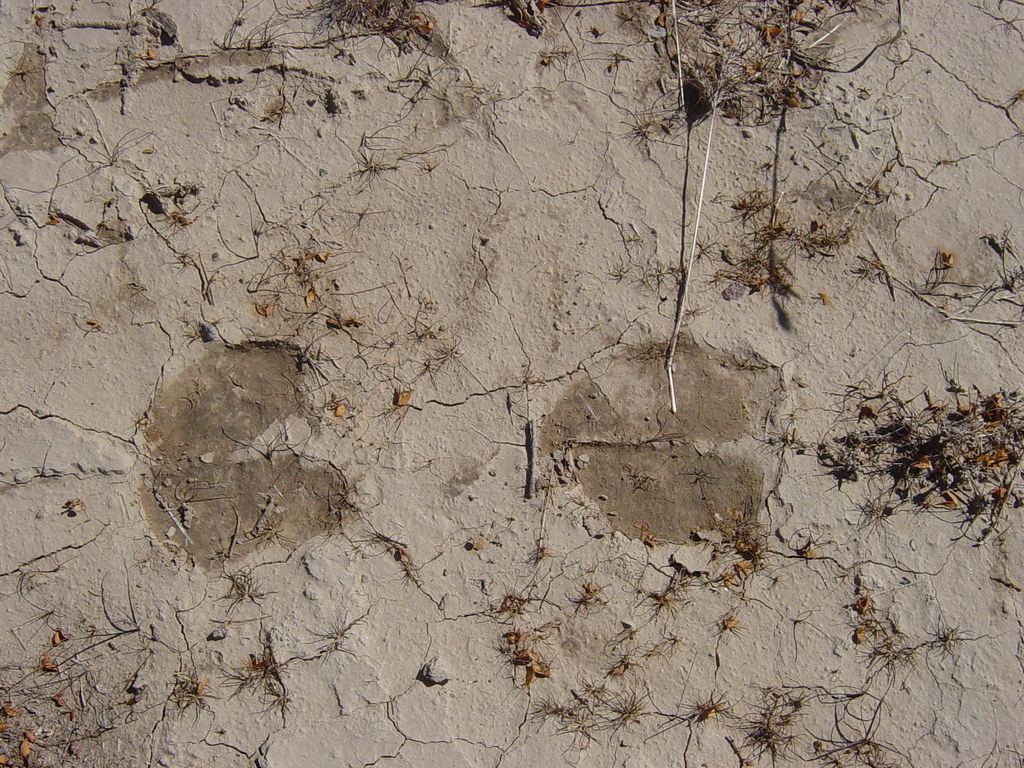The MAHA movement has brought food quality, human health, and regenerative farming to the attention of conservatives. Yet articles from across the political spectrum still slander organic, small-scale farming operations as deleterious to the environment and claim that GMO-cropping and factory farms are salutary for American consumers and the world. This isn’t true.
Granted, I’m biased—I’m a farmer and cow owner, so I get defensive about my animals and my way of life. I also wrote a book, replete with a foreword by super-farmer Joel Salatin, laying out a blueprint for what has become the MAHA movement, tellingly titled Small Farm Republic: Why Conservatives Must Embrace Local Agriculture, Reject Climate Alarmism, and Lead an Environmental Revival.
Industrial farming is not advantageous for American food security or human health, nor is it environmentally sustainable. Since I’m also an attorney, I will present my case here to you, my jury of readers.
The pitch for factory farms was recently made at National Review, in a piece whose headline displays strange bedfellows: “Factory Farms Are Good for People and the Planet, Argues NYT Column.” Wesley J. Smith approvingly cited NYT author Michael Grunwald in support of this ear-tickling conclusion:
First, we need industrial methods of growing and raising food to prevent too much of the environment from being consumed by agriculture, both plant and animal. And, he notes, we need industrial methods to keep food affordable.
Arguing that “too much of the environment [is] being consumed by agriculture” reflects a dangerous hubris in a society unconcerned with “too much of the environment being consumed” by urban and suburban sprawl and expansive lawns that gobble hundreds of millions of gallons of refined gasoline annually—let alone the nation’s precious underground aquifers drained to feed those abominations rather than the human need for food.
Grunwald’s second defense, the “affordability” of factory food and confined animal feeding operations (CAFOs), is as old as the wiles of Beelzebub. Measuring food solely in monetary terms ignores the externalized costs of ecotoxins, obesity, cancer, and declining human health that ride in on its “cost-effective” coattails. This is Wendell Berry 101.
Cheap, ultra-processed food production is killing the soil, tainting water and children’s bodies with forever chemicals, and creating threats to national security and long-term food supplies. Ethanol production devours tens of millions of acres through intensive, federally subsidized corn cropping: Is that environmentally “affordable” or “consuming too much land”? What would shifting livestock out of factory confinement and back to grasslands do to reverse carbon loss, break down atmospheric toxins, and improve water and nutrient retention?
Some 92 million acres of corn are sown each year in the United States, in large part to feed cows that could be fed grass. Replacing cows with fake meats will deprive pastures of carbon-sequestering ruminants like the bison that built the American prairies. Instead of concentrating animals in concrete factories and feeding them petroleum-dependent grain crops, they should be rotationally grazed: fewer antibiotics, fewer pesticides and herbicides, and manure spread by the action of bovine legs rather than gargantuan tractors. Replacing natural manures with synthetic factory fertilizers manufactured from natural gas (aka methane) in the name of removing cow farts (aka methane) is a fools’ bargain. The industrial sirens tickle consumer ears with lies.
The nation’s precious aquifers are being steadily depleted to fill swimming pools and water lawns in arid Arizona while Saudi Arabia farms alfalfa to send back home. Cow manure rebuilds soils, feeds soil microbes, and helps the ground retain water—GMO crops and synthetic fertilizers do the opposite. In the name of “preventing too much of the environment being consumed” by agriculture, industrial farming is steadily desertifying the land, creating a wasteland that only livestock on grass can restore.
In the name of “preventing too much of the environment being consumed” by agriculture, industrial farming is steadily desertifying the land, creating a wasteland that only livestock on grass can restore.
And what of the fact that Americans throw away some 40% of our food annually? Might reducing food waste reduce agricultural land area, and landfill space to boot?
Mine is not a left-wing voice of animal rights idealism or return-to-the-land idyllicism. This is just plain old real science. Yet Grunwald argues from a blinkered perspective:
Artisanal grains and grass-fed beef are worse for nature than chemical-drenched corn and feedlot-fattened beef because they require much more land for each calorie they produce. In 2021, Sri Lanka’s president banned agricultural chemicals in an effort to force its farmers to go organic, vowing to end industrial farming and get in “sync with nature.” Then farm yields crashed, plunging the country into a food crisis and forcing it to import calories it used to grow itself.
Mr. Grunwald is merely making my case for me. The claim “requiring much more land” no longer holds when you consider that the soil of that “much more land” is being fed and rebuilt using manures, rather than saturated and depleted by chemicals. Sri Lanka’s experience proves the dangers of chemical-dependency, revealing the damage to soils caused by chemical adjuncts, not the need for more of the same toxins as medicine. Accelerating soil erosion increases water loss, necessitating ever greater applications of synthetic adjuncts to maintain industrial crop yields. This is a desecration, not an improvement, of natural processes.
Greenwald’s industrialist sleight of hand continues:
But even though its soybeans and cattle have often invaded forests and wetlands, [industrial agriculture’s] higher yields have spared billions of additional acres of the planet’s ecosystems from destruction, by making more food on existing farmland. The Green Revolution didn’t end deforestation, but few forests would still be standing without it.
False: Industrial agriculture is subjecting prime farmlands to destruction, and so is residential sprawl. Parts of the San Joaquin Valley have subsided dozens of feet due to water drawdowns. Soil erosion is seeding a future dustbowl; see, for example, the dust storms that hit Chicago this spring. Healthy soils sequester far more carbon dioxide than trees and “rewilding.” It is industrial tilling, not peasant farming, that has released carbon dioxide en masse.
This highlights the most significant hidden cost of all: ecotoxins that endure for hundreds of years. Pesticides, fungicides, and herbicides accumulate in mothers’ milk and impair children’s reproductive systems. The factory farming perversely advocated for by Greenwald and Smith channels modern humans into Wal-Mart CAFOs. When will America become “net-zero” of the millions of tons of chemicals churned out of smokestacked factories every year and dumped ubiquitously in our soils, water supplies, and food via synthetic urea, pesticides, herbicides, and fungicides?
The answer is, never—so long as the lie is spread that cows are bad for the climate, and that “artisanal grains and grass-fed beef are worse for nature than chemical-drenched corn.” That is simply industry poppycock, now furthered by the New York Times and National Review, in odd tandem.
I rest my case.
Image via Flickr






5 comments
cheryl meier
Why do they argue to save the forests from agriculture while Bill Gates is busy chopping down as many trees as he can and then burying them all?
I am shocked to learn that farm land is viewed as wasted space. Our heartland should be full of family farms providing healthy food and employment for us. I used to think conspiracy theories were just that, theories, but I am starting to believe an increasing number of them. Our elites are unwilling to devout land for food but hey take all the you want for ethanol and solar farming.
Doug Wiggans
I’ll keep it to just a couple of points. Please drop the phrase “grass fed” as opposed to “corn fed”. All cows in the U.S., for most of their lives are kept on improved grass fields & wheat pasture. Wheat is a grass. The last year or less, cattle are fed a ration that does include a high % of corn. This allows the cattle to grow & gain weight faster than if left solely on grass pastures. The “petrochemical corn”, whatever that means, is a grass plant itself. The whole plant itself, ear include, is processed over time, through fermentation, & then included into the ration. The ear, which is what most people typically call “corn” is in fact the seed of the grass plant. One way or another, cattle are being fed grass products. For brevity, my last point pertains to organic farming. If someone chooses to go this route, that’s one’s’ choice to make. I choose not to do so. Organic fields, when no pesticides are being used, are not something for the weak to see, much less eat from. Every type of insect pest feeds unabated on the crop. Just like ever other. Living organism, if it eats something, you can be assured that soon enough it will crap something. Mixed right with whatever fruit or vegetable being grown. This insect excrement, with moisture. & heat added will soon produce bacteria & fungus that grows right on your fruit or vegetable. Yum, yum. No herbicides? Organic fields are weed & grass infested messes. It is nearly impossible to walk through them by the end of the season. The weeds & grasses leave enough seeds to germinate through the next 100 years years to perpetuate this mess further. Organic farming is nothing that is being presented to the public. It’s not 1900 & it will never be again. .
Annie
So way were we all healthier before pesticides and herbicides and fungicides were used so much? I’ll take the insect poop over a pesticide any day. God made the insect and in no way, made the herbicide. And cleaning produce and removing skins and cooking (if it’s a produce that is to be cooked, which is what I mostly do as I don’t like raw veg, unless it’s lettuce, avocado, carrots) the produces gets rid of or kills the bacteria/fungus. As for cows, hay isn’t the same as grass. Grass is green and hay is dead/dried. And what is “improved grass”? Why not forgo the “fattening up with corn” before the slaughter? I happen to like the taste of grass fed beef better AND IT ACTUALLY HAS SOME OMEGA-3 FATTY ACIDS (which humans are starving for and are very necessary for health) IN IT, unlike the corn fed cows, which have very little.
John Michael
Thank you for a well written article John, I couldn’t agree more. My grandfather was a farmer in NE Nebraska and raised corn and had a huge sow and sold her piglets, and they had a large garden and a number of chickens for family food, and it was all organic. By the mid 60s he’d retired due to emphysema (which I imagine was the result of breathing in dust for many decades) so the farm was sold to another farmer who lived in the same town. Long story short they were NOT organic farmers and they completely destroyed the ecosystem. I visited the old place 25 or so years ago and what I found broke my heart. The wildlife was competely gone.. there were no birds, no bunnies, nor the occasional deer that used to be there and even the plants in the hedge row and on the roadside were all dead. All 160 acres was dead land, and there were also no insects save THOUSANDS of flies everywhere. The windbreak where we used to collect wild Asparagus was gone as well, and on my walk I found a pair of Blue Heron not long dead just a hundred yards from from the house, likely from having eaten something they shouldn’t have. I was shocked, dismayed and seriously pissed off at seeing how they had destroyed our old family farm like they did, and it was all because of pesticides and herbicides having killed the soil. I’ve been an organic gardner since I was 30, and some years ago partly due to that experience I decided to create my organic gardening website and hopefully help people understand the profound danger of current farming and gardening practices. I’m a big fan of home grown food for at least part of the year, and am a HUGE fan of small family farms, but unfortunately I think it was Meryl Nass who wrote recently on her substack that 160,000 small farmers have been put out of business in recent years because they simply cannot compete with big Agra. I don’t know how it’s going to happen but we absolutely MUST find a way to change this. The upside is that RFK Jr. knows how dangerous pesticides are and has talked about doing somethin about it, but I have no idea if he is or not, Big Agra is a huge conglomerate and has a lot of clout, and the “climate change” fools are just making things worse. They have no freaking idea that if you feed a cow grass it doesn’t fart, but feed it grain and guess what? It farts like crazy because it’s stomach is designed to digest grass and NOT to digest grains. As I see it, and I know I’m not along in saying that something must be done or we’re just going to continue to destroy farming in the US and the very foundation of our health, which in turn creates more and more health problems for everyone who doesn’t eat organic.
William Smith
Thank you for this piece, sir!
I think Mr. Berry wrote something to the effect that not everybody is temperamentally wired to farm; not everybody needs to “go back to the land.” However, I would say a great deal more of us do, at least to the degree that we participate in some form of agriculture and animal husbandry, however modest. The suburban lifestyle we now consider normal is indeed unsustainable, but participating in your own food production, and the attendant lifestyle, will require a major change in attitude and mindset. And, frankly, I believe a good deal of the objection to it is based in fear of the loss of convenience – one of the false gods of our age! – and just plain ol’ laziness!
Comments are closed.